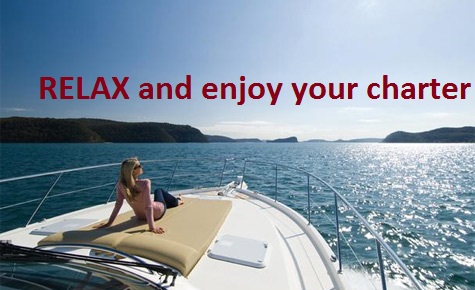It is very important to have a contract in place to set out any rights, obligations and cancellation policies.
The charter contract will include dates and locations of the charter, details of the payment structure and insurance along with special notes for on board behaviour.
Our team has a great experience with charter contracts and is able to explain any clauses which charterers may find confusing.
A charter contract is carefully constructed to protect both the charterer and the yacht owner.
Charterers must be aware of maritime rules and regulations and the contract is therefore constructed to ensure the laws of the country to which a yacht is flagged are abided by.
Never set out for a sailing or cruising trip, even very short, without a proper document to cover you and your guests.
There are a number of standard contracts used within the crewed yacht charter industry on a regular basis.
The common types of contract are:
The MYBA charter contract, which was developed by the MYBA Worldwide Yacht Brokers Association. This is probably the most used contract in the industry.
AYCA charter contracts, developed by the American Yacht Charter Association.
Caribbean term contracts, developed by the Charter Yacht Brokers Association.
In addition, some countries have a compulsory documents required by the region’s or area’s local authorities.
For XXL Yachts: some Giga Yachts use special documents, particularly when they are under SOLAS (Safety Of Life At Sea) regulation and carry 30+ guests. The same applies to a privately chartered cruise ship or passenger vessel.
In general, ELYSEE Yachts Ltd uses the latest version of MYBA E-Contracts.
The E-Contract has been specially developed to ensure you that this very standardized agreement covers most of the conditions and risks, and that no clause has been modified during the drafting of this contract.
The only adjustments that are authorized are mentioned under “special conditions” (page 2, clause 18c ) in which each owner indicates the requirements for board behavior and compliance to regulations in accordance to the flag and/or regulation as well as the local authorities of the cruising area.
You should know:
• Your captain holds a fully signed set of documents on the yacht and you can refer anytime to them during your cruising.
• Typically, the charter fee includes: the lease of the yacht and crew, the insurance of the yacht and crew, the provisions for the crew
• Typically the charter fee does not include: the expenses of the charter party (you and your guests) which are usually the following: The fuel for the cruising and gasoline for the tenders & water toys, your food and drinks provisions, other expenses such as marina fees, agency fees, canal passage dues, shore excursion spending… In order to facilitate the management of those costs, the charterer is requested to deposit an allowance (APA – Advance Provisioning Allowance) upon the payment of the charter agreement and which usually represents 30% of the charter cost. At the end of the charter, the captain will remit the full count of expenditures and the balance will be settled on board with him.
• Any VAT (Valued added tax) or other local taxes and dues are part of the national regulation of the country in which you cruise and are a legal obligation.
Ask your charter broker about those regulations. In certain cases, the taxes or VAT are lowered according to your cruising plan. You might be able to benefit to a substantial reduction by slightly alterating your cruising plan or include a destination. A competent Captain will inform you of the status of your expenses during the course of your charter so to enable adjustments if needed.
• A tip for the crew is customary but at charterers discretion. You should include a reward, most commonly ranging 5%-15% of the charter fee according to your satisfaction, and hand this directly to the captain or the crew upon disembarkation. In US waters and the Caribbean 15% is usually expected.
• The main charterer is responsible for the behaviour of all his charter guests throughout the charter.
• The Captain is responsible for the behaviour and performance of his entire crew, and of the performance of the yacht and its equipment.
• Never forget: while at sea, maritime law applies, and your Captain is in charge… and over all, sea and weather conditions govern over your itinerary and/or schedule… but this is part of the thrill of cruising!
Don’t hesitate to require further information for each case; Our team is happy to answer all your questions.




